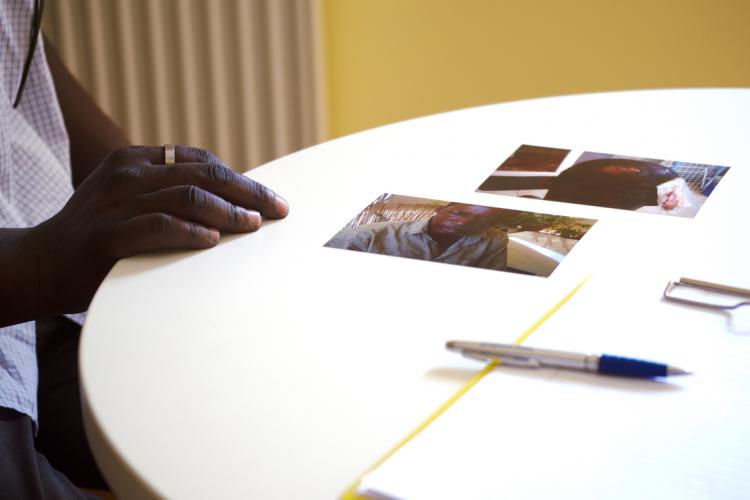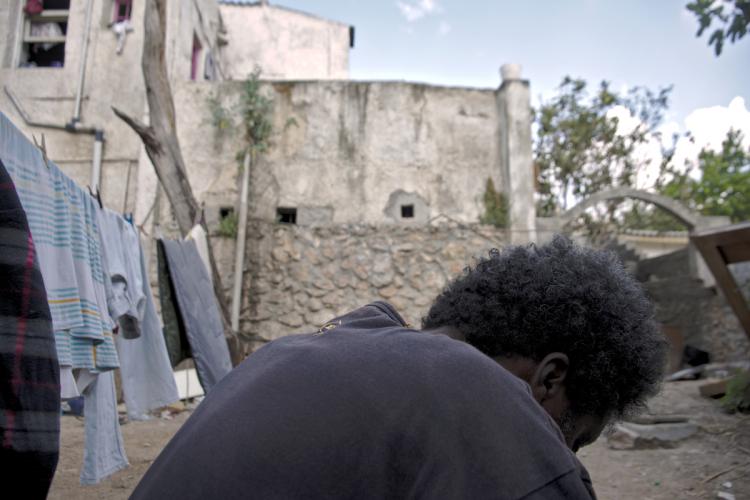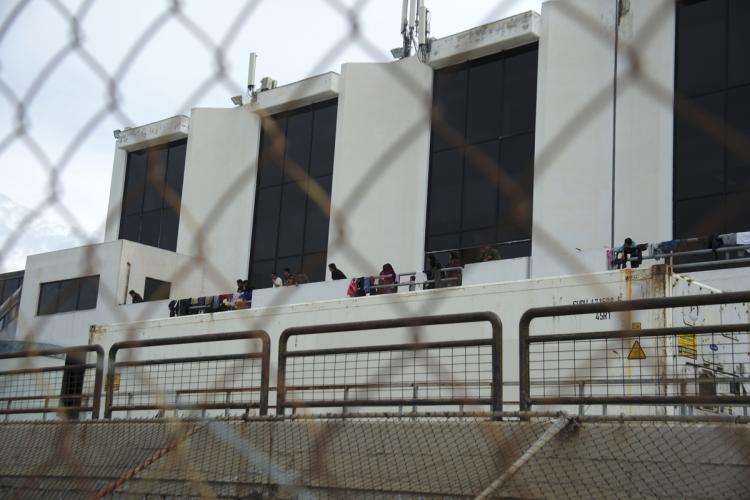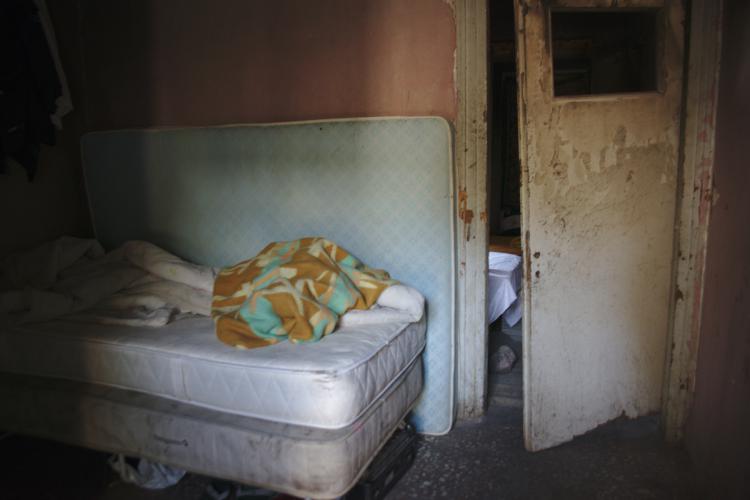Guest post by Cinzia D'Ambrosi, a photojournalist based in London, UK. Cinzia holds an MA in Photojournalism and Documentary Photography from the London College of Communication, University of the Arts. Her photo stories expose issues of marginalization, poverty, and human rights. Cinzia’s current photographic project, ‘Hate Hurts,’ documents the rise of racism in Europe through the stories of victims of hate crimes. Follow her on Twitter @cinziadambrosi.
In June 2015 I was invited along with a number of international photojournalists to a photography residency in Athens by M55, a photography residency and gallery. The general topic we were called to document was ‘The Life in Crisis in the City of Athens.’ My attention was quickly drawn to the issue of hate crimes in line with my photojournalism work, which is primarily based on photo stories that expose issues of marginalisation and discrimination as a result of race, religion, or economic background. Hate crimes target a person because of his or her presumed ‘difference’ and often go unreported because of the victims’ vulnerability and mistrust in law enforcement. The victims of hate crimes, I have learned, are often silent as they lose trust and feel objectified. They become the object of a ‘hated’ idea, rather than viewed or treated as people with lives and dreams.

My project ‘Hate Hurts’ began with the aim of telling the personal stories of victims in order to give them a voice, to expose the causes and effects of hate crimes, and to record the political and social background underpinning their occurrence. This photographic and human journey has brought me to the stories of many migrants, asylum seekers, and refugees in Athens, those who are forcibly living at the margins of society. As I talked to them, I realised that hate crimes are also built on invisible layers created by an impenetrable bureaucracy and the prejudice at the core of society. ‘Hate Hurts’ is an ongoing documentary photographic project that exposes these layers through the victims’ words and their life experiences in Athens. This post introduces some of the participants and their stories.

I met B.S. while he was receiving treatment from the NGO Babel in Athens for anxiety and stress disorder. B.S. is an asylum seeker from Guinea and a victim of a brutal hate crime incident. He was attacked by a group of people as he was getting off a bus in central Athens at 9:00pm in September 2014. He recalls: ‘I heard people behind me shouting “Malaka” [wanker] and immediately after someone started to slapping me. I asked ‘Why?’ but they just carried on attacking me, throwing me back and forth like a football ball. Then I saw a knife been taken out and I was knifed. I collapsed. I was left for dead on the pavement before the police was called six hours later. The police station was 2 minutes away.’

Unfortunately, B.S.’s case isn’t an isolated one. Sometimes such crimes are psychological nature, as a refugee from Sudan explains:‘I see people wiping a handle or a seat that has been used by me, a black person, before they would use it themselves.’ Moreover, discouragingly the police attitude seems to add to their marginalisation. S.E.Y. points out: ‘I have been in prison many times because of having no paper. Police stops me for no reason, takes me to the police station and I am left there without any explanation, sometimes for hours. If I ask for some food or water, they laugh at me.’
Even as my participants suggest that cases of physical attacks appear to have diminished in Greece, but those of psychological nature have risen. The message seems to be clear: keep refugees and asylum seekers in confined areas, whether physically or psychologically.

There seems to be a common objective in Greece and further afield to limit the movement of those deemed unwanted through a physical process of containment represented by detention centres, hot spots and similar structures, and a psychological repression which imposes on those considered dangerous restrictions so that they cease to ‘exist’ in ‘our’ societies. Invisible barriers are built-in mechanisms which overall project the impenetrability of a country but would also keep those unwanted from entering the system of that country. Their existence seems to objectify the person that’s not wanted as s/he is contained at the margins of society, either in large disused spaces or left out from systems that would allow them to live their lives fully. Invisible borders don’t allow refugees and migrants to take control of their lives, leaving them in limbo in the face of the many legal regulations that keep them in this state. Typically, for instance, they have no permit to stay or leave, they aren’t allowed to work nor do they have access to a shelter or health provisions. This is a politics of containment which targets a specific group of people. Limiting the movement of undesirable people, confining them into areas of hot spots and detentions with disregard to their age, gender, and their human rights, is a modern day hate crime. Looking in from the outside, people are fenced in, whether in a physical or psychological sense. It’s disturbing to see. Likewise, keeping a human being at the margins of society for years is equally a modern day hate crime. Their lives are kept on hold in this way, forcing them to fend for themselves in our impenetrable walls. In Greece, many are left in these conditions for years, paving their way forward with the help of charitable bodies, who offer the basics of food and general amenities. M., for example, is living in an occupied building in the area of Amerikis Square in Athens.

At any given time in this run down building are over 30 people taking shelter overnight and many more during the day. M. says: ‘[I] feel like I have been put into a big prison―I cannot leave, find a job and live a normal life. I want to bring your attention to suffering. We have no quality of life. For months I slept in a park, no money, no place to live. When you get here, there is no system to make you safe. I have been in detention, maltreated, and victim of police violence. How can we be strong and survive? How can we live life like a human being? I just wanted to find a place that it was safe for me. I must try to survive and be strong.’
Any comments about this post? Get in touch with us! Send us an email, or post a comment here or on Facebook. You can also tweet us.
__________
How to cite this blog post (Harvard style):
D'Ambrosi, C. (2016) The Politics of Containment. Available at: https://www.law.ox.ac.uk/research-subject-groups/centre-criminology/centreborder-criminologies/blog/2016/04/politics (Accessed [date]).
Share:








